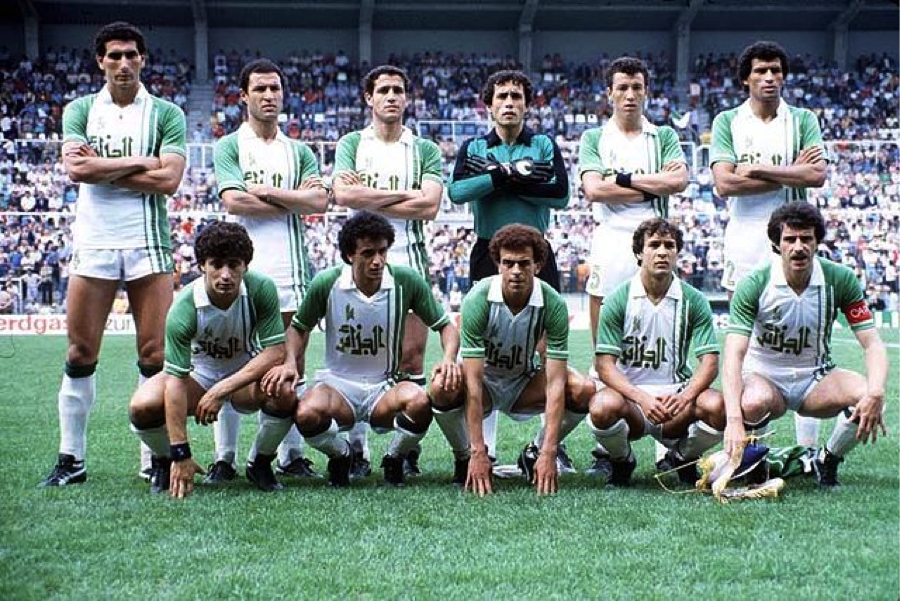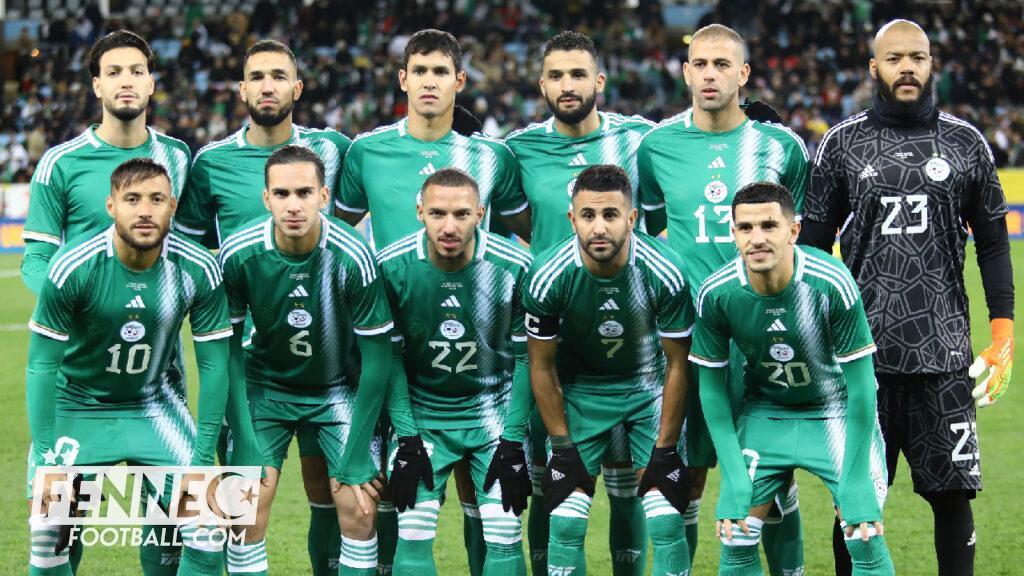“History of Football in Algeria
Related Articles History of Football in Algeria
History of Football in Algeria

Football holds a revered place in the hearts of Algerians, deeply intertwined with the nation’s history, identity, and struggle for independence. From its early beginnings under colonial rule to its rise as a symbol of national pride and unity, the story of football in Algeria is a captivating tale of resilience, passion, and triumph.
Early Beginnings: Football Under Colonial Rule (1897-1962)
The introduction of football to Algeria can be traced back to the late 19th century during the French colonial era. European settlers, primarily French, introduced the sport to the country, establishing football clubs and organizing matches among themselves. Initially, football was largely confined to the European population, with limited participation from the indigenous Algerian population.
The first football club in Algeria, Club Athlétique d’Oran, was founded in 1897, followed by other clubs in major cities such as Algiers and Constantine. These early clubs were primarily composed of European players and catered to the interests of the colonial elite. However, as football gained popularity, some Algerians began to participate in the sport, albeit in a limited capacity.
The colonial authorities implemented policies that discriminated against Algerians in various aspects of life, including sports. Algerian players faced barriers to entry into European-dominated clubs and were often relegated to playing in separate leagues or lower divisions. Despite these challenges, football provided a platform for Algerians to express their identity, foster camaraderie, and challenge the dominance of the colonial regime.
The Rise of Algerian Football and National Identity (1920s-1950s)
In the early 20th century, football began to gain traction among the Algerian population, particularly in urban areas. Algerian players started forming their own clubs, often associated with nationalist movements and cultural organizations. These clubs became symbols of Algerian identity and resistance against colonial rule.
One of the most prominent Algerian football clubs of this era was Mouloudia Club d’Alger (MCA), founded in 1921. MCA quickly became a symbol of Algerian nationalism, attracting a large following among the local population. The club’s colors, green and red, represented the Algerian flag and the aspirations of the Algerian people for independence.
Other notable Algerian football clubs founded during this period include Club Sportif Constantinois (CSC), founded in 1926, and Union Sportive Musulmane d’Alger (USMA), founded in 1937. These clubs played a crucial role in promoting football among Algerians and fostering a sense of national identity.
The FLN Football Team: A Symbol of Resistance (1958-1962)
During the Algerian War of Independence (1954-1962), football played a significant role in the struggle against French colonial rule. In 1958, the Front de Libération Nationale (FLN), the main Algerian nationalist movement, formed a football team consisting of Algerian players who had been playing professionally in France.
The FLN football team, known as "le Onze de l’Indépendance" (the Independence Eleven), was formed in secret and traveled around the world playing friendly matches against national teams and club sides. The team’s primary objective was to raise awareness about the Algerian struggle for independence and to garner international support for the Algerian cause.
The FLN football team became a symbol of Algerian resistance and a source of national pride. Its players were hailed as heroes, and their matches attracted large crowds of Algerian expatriates and supporters of Algerian independence. The team’s exploits helped to galvanize support for the Algerian cause and contributed to the eventual independence of Algeria in 1962.
Post-Independence Era: Building a Footballing Nation (1962-Present)
Following Algeria’s independence in 1962, football became a national sport, and the government invested heavily in developing the sport at all levels. The Algerian Football Federation (FAF) was established in 1962 and became affiliated with FIFA in 1964.

The post-independence era saw the emergence of a new generation of Algerian footballers who were eager to represent their country on the international stage. The Algerian national team, known as "Les Fennecs" (The Desert Foxes), achieved notable success in the 1970s and 1980s, qualifying for the FIFA World Cup in 1982 and 1986.
In 1982, Algeria made history by defeating West Germany 2-1 in their opening match of the World Cup, one of the biggest upsets in the tournament’s history. Although Algeria did not advance to the knockout stages, their performance in the 1982 World Cup earned them international recognition and cemented their place in football folklore.
The Golden Generation and African Cup of Nations Triumph (2010-2019)
In the late 2000s and early 2010s, Algerian football experienced a resurgence, with the emergence of a new generation of talented players. This "golden generation" of Algerian footballers, led by players such as Madjid Bougherra, Rafik Halliche, and Sofiane Feghouli, achieved significant success on the international stage.
Algeria qualified for the 2010 FIFA World Cup in South Africa, their first World Cup appearance in 24 years. Although they did not advance beyond the group stage, their participation in the World Cup marked a turning point for Algerian football.
The pinnacle of Algeria’s footballing success came in 2019 when they won the African Cup of Nations (AFCON) for the second time in their history. Led by captain Riyad Mahrez, Algeria defeated Senegal 1-0 in the final to lift the trophy, sparking jubilant celebrations across the country.
Challenges and Future Prospects
Despite its rich history and passionate fanbase, Algerian football faces several challenges, including inadequate infrastructure, corruption, and a lack of investment in youth development. However, there is also a sense of optimism about the future of Algerian football.
The Algerian government has launched initiatives to improve football infrastructure and promote youth development. The FAF is also working to improve the governance of football in the country and to attract more investment into the sport.
With its talented players, passionate fans, and rich history, Algerian football has the potential to achieve even greater success in the years to come. The nation’s footballing journey is a testament to the power of sport to unite people, inspire hope, and promote national pride.
Conclusion
The history of football in Algeria is a compelling narrative of resilience, passion, and triumph. From its humble beginnings under colonial rule to its rise as a symbol of national identity and unity, football has played a significant role in shaping the Algerian nation.
The FLN football team’s exploits during the Algerian War of Independence, the national team’s historic World Cup appearances, and the recent African Cup of Nations triumph are all testament to the enduring power of football to inspire and unite Algerians.
While challenges remain, the future of Algerian football looks bright, with the potential for even greater success on the international stage. As Algeria continues to invest in its football infrastructure and youth development programs, the nation’s footballing journey is sure to continue to captivate and inspire generations to come.

